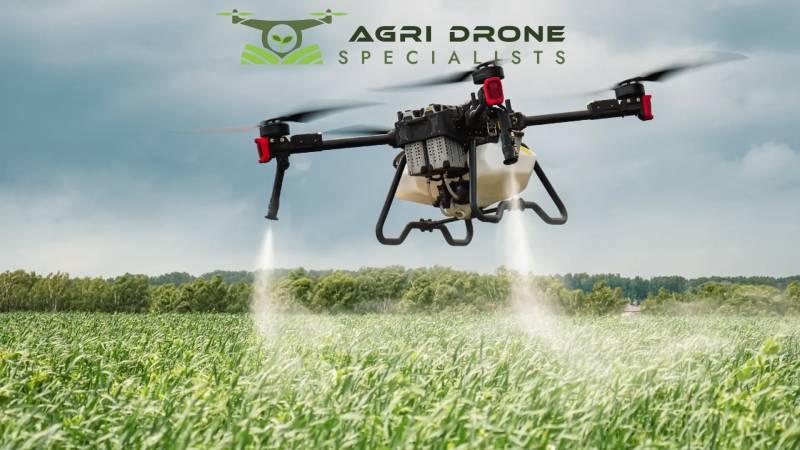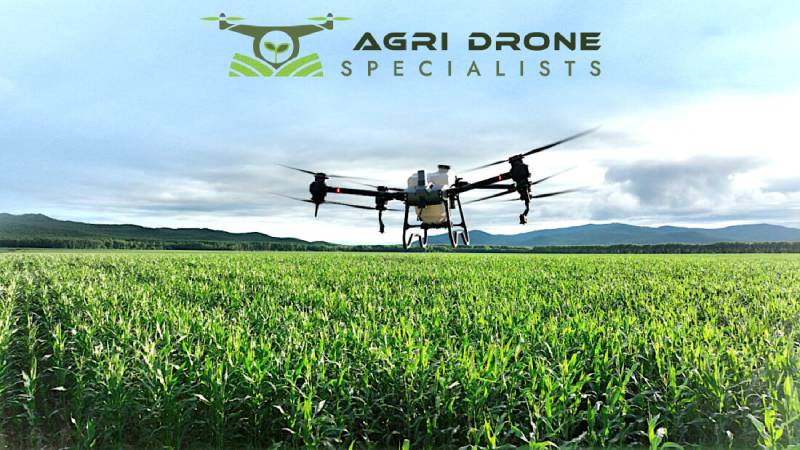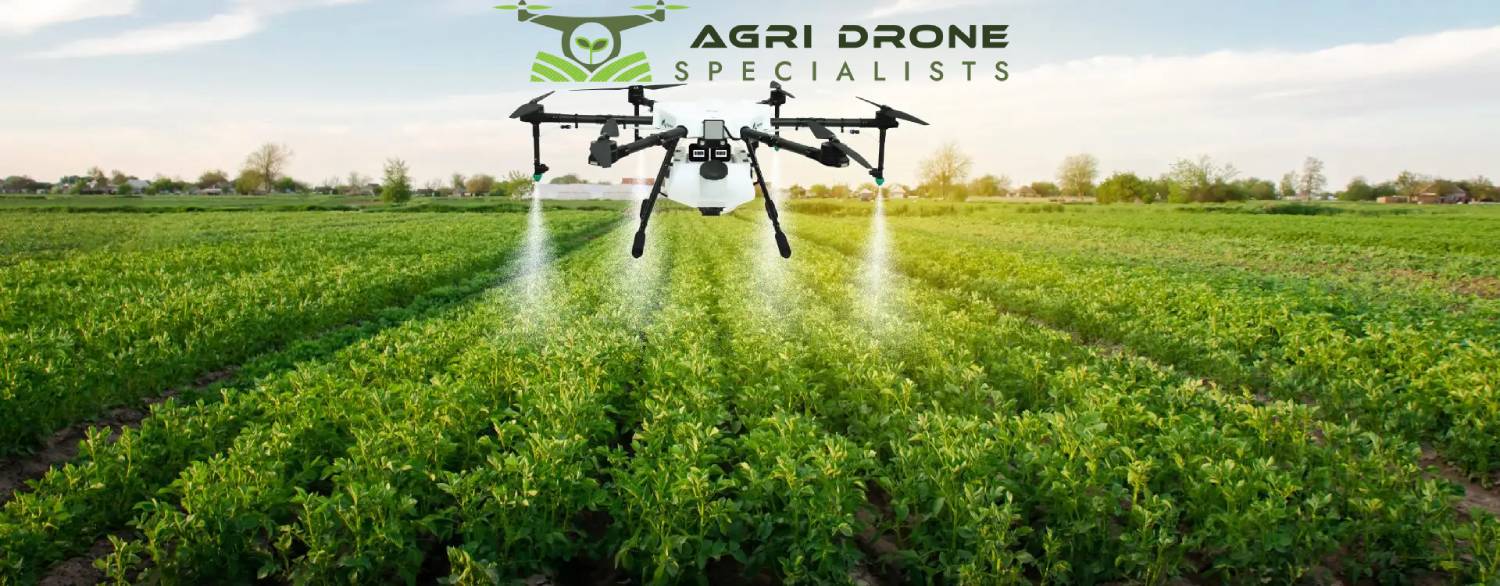Agriculture and land management rely on herbicides and pesticides to control weeds and pests. But traditional spraying methods, such as tractor mounted boom sprayers or manual application, often lead to environmental concerns like chemical runoff, soil disruption and damage to non-target plants and wildlife.
With technology advancing, spraying drone services are changing the way farmers and landowners manage weed control. Drones provide precision, efficiency and environmental protection making them a sustainable alternative to traditional spraying methods.
This article explores the environmental benefits of precision drone spraying and how it helps to a healthier ecosystem and more efficient land management.

Reducing Chemical Runoff with Targeted Applications
One of the biggest environmental risks of traditional spraying methods is chemical runoff. When herbicides and pesticides are applied broadly, excess chemicals seep into nearby water sources, contaminating rivers, lakes and groundwater. This pollution harms aquatic life and affects drinking water quality.
How Drone Spraying Minimizes Runoff
• GPS guided precision ensures chemicals are applied only where needed, reducingneeded reducing excess application.
• Variable rate technology allows drones to adjust the spray volume based on vegetation density.
• Automated flight paths ensure consistent coverage and prevent over spraying in any area.
• Targeted application reduces waste as drones focus on affected zones rather than blanketing entire fields.
Unlike traditional boom sprayers which often cover large areas indiscriminately spraying drone services allow landowners to apply herbicides in a controlled and calculated manner reducing the risk of chemical runoff.
Less Soil Disruption than Ground Machinery
Traditional land management relies heavily on ground-based machinery such as tractors and boom sprayers. While effective these machines disturb the soil every time they pass over a field and lead to long term damage.
Soil compaction caused by heavy machinery reduces water infiltration, disrupts soil aeration and negatively impacts root growth. Over time compacted soil leads to erosion, lower crop yields and increased maintenance costs.
Why Drones are Better
• No soil disturbance as drones fly on the air.
• Prevents soil compaction compared to heavy machinery.
• Less fuel consumption as drones are battery operated.
• Lower carbon footprint as no big diesel-powered equipment is needed.
By using spraying drone services farmers and land managers can protect their soil’s natural integrity while still having effective weed and pest control. This means better long term soil health and sustainability.
Protecting Native Flora and Fauna Through Precision Spraying
One of the biggest drawbacks of conventional spraying is the broadbrush impact on the environment. Traditional spraying methods often lead to:
• Accidental exposure of non-target plants.
• Harm to beneficial insects like bees, butterflies and other pollinators.
• Disruption of local ecosystems causing unintended biodiversity loss.
Drones however allow for precise spraying, so only invasive weeds and harmful pests are targeted. This means native plants and wildlife are protected from unnecessary chemical exposure.
How Precision Spraying Saves Conservation
• Less chemical exposure to beneficial insects and pollinators.
• No damage to native vegetation by only treating invasive species.
• Balanced ecosystems, no unintended ecological disruption.
For example, in areas where invasive plants like gorse and wilding pines threaten native species, drone spraying services allow for targeted treatment without harming surrounding vegetation. This is key for conservation and ecosystem restoration.
Long Term Ecological Benefits of Drone Use
Drone spraying has benefits beyond immediate environmental protection. Over time it contributes to a more sustainable and eco-friendly approach to farming and land management.
Long Term Benefits of Drone Spraying
• Less herbicides due to precise application.
• Less water pollution, safer aquatic ecosystems.
• Healthier soil, more productive and resilient crops.
• Less air pollution than fuel powered spraying equipment.
By using drone spraying services in modern farming and land management, big farmers and conservationists can contribute to long term environmental sustainability.
Additional Benefits of Drone Spraying
Apart from environmental benefits, drone spraying also has some practical benefits that improve efficiency, cost savings and worker safety.
Efficiency and Cost
• Faster application – Drones can cover large areas in no time, less labor cost.
• Less chemical waste – Precision spraying means only the right amount of herbicide is used.
• Less equipment maintenance cost – Drones require less maintenance and fuel than big machinery.
Access to Hard-to-Reach Areas
• Ideally for rugged terrain – Drones can reach steep hills, dense vegetation and wetlands where traditional equipment can’t.
• Reduces manual spraying – Landowners and farmers no longer have to trek dangerous or inaccessible areas.
• More efficient in forestry and conservation – Drones can target specific trees or plant clusters, perfect for managing invasive species in forests and reserves.
Worker Safety
• No direct chemical exposure – Traditional spraying requires workers to handle herbicides manually, higher health risks.
• Less heavy machinery – Less tractors and boom sprayers means less workplace accidents.
• Remote operation – Drones can be operated from a safe distance, reduces physical strain and hazardous exposure for workers.
By providing safe, efficient and precise application, drone spraying services are changing land management while prioritizing both worker safety and environmental responsibility.
The Future of Drone Spraying in Sustainable Farming
As regulations get tighter and sustainable farming gains ground, drone spraying will continue to play a big role in reducing chemical use and conservation.

New Developments in Drone Spraying
• AI weed detection – Drones will soon use machine learning to identify and target specific weed species without human intervention.
• Eco friendly herbicides – Biodegradable and organic herbicides will make drone spraying even more sustainable.
• Automated farm integration – Drones will be linked to smart farming systems, real-time data collection and precision farming.
By adopting these advancements, farmers, landowners and conservationists can further reduce their environmental footprint while maintaining high productivity.
Conclusion: A Smarter Greener Weed Control
Traditional weed control methods harm the environment resulting in chemical runoff, soil erosion and biodiversity loss. Drone spraying services is a smarter, more sustainable way, with precision herbicide application, less soil disturbance and protection for native habitats.
Landowners, farmers and conservationists looking to do more with less environmental impact, drone spraying is the way to go.
For professional, reliable and eco-friendly spraying drone services, contact Agri Drone Specialists today. Get precision, safety and sustainability in every application.



